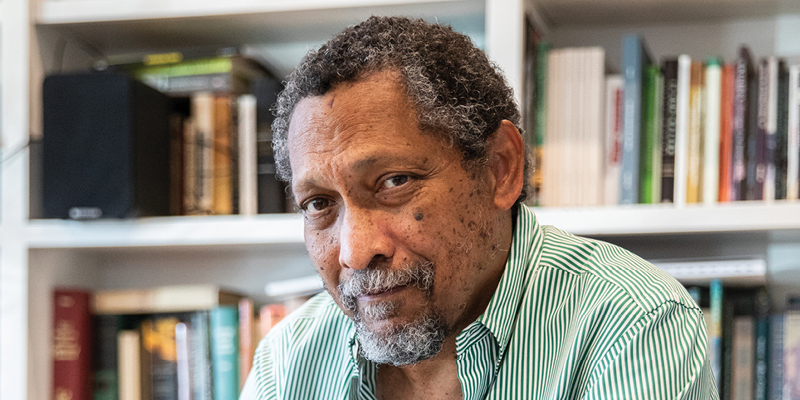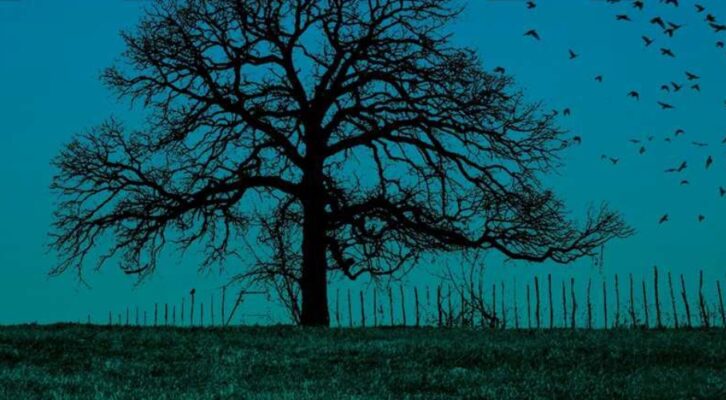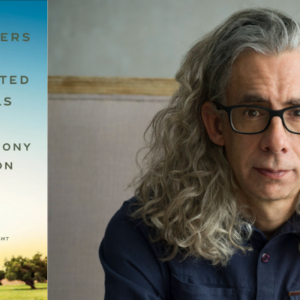
Percival Everett on Ralph Ellison's Invisible Man
In Conversation for the Windham-Campbell Prizes Podcast
The Windham-Campbell Prizes Podcast features a series of conversations with the 2023 Windham-Campbell Prize winners about their favorite books. Hosted by Michael Kelleher.
*
Percival Everett (winner of a 2023 Windham-Campbell Prize for Fiction) joins Windham-Campbell Prize administrator Michael Kelleher for the last interview of the season, and it’s a joyful exploration of Ralph Ellison’s seminal novel Invisible Man, Everett’s relationship to the book and its contemporaries, and the enduring power of a novel that makes you think.
For a full episode transcript, click here.
*
Reading list:
Invisible Man by Ralph Ellison • Moby Dick by Herman Melville • The Paris Review, The Art of Fiction No. 8 (Ralph Ellison) • “Box Seat” by Jean Toomer • If He Hollers, Let Him Go by Chester Himes • Cotton Comes to Harlem by Chester Himes • Native Son by Richard Wright • “(What Did I Do To Be So) Black and Blue” by Louis Armstrong • The Way of All Flesh by Samuel Butler • Naked Lunch by William S. Burroughs
*
From the episode:
Michael Kelleher: I was reading the Paris Review interview that [Ellison] did. It was like the art of fiction number eight, I can’t remember, I forget who the two writers were — it just says interviewer in the book. I looked it up and it was a white man and a black woman interviewing him and the tone of the questions I thought was fascinating. They kept asking him like, well, how, how can you write something about a minority and then hope for it to be universal? And he was very patient responding to these, most of the time he would just say, well, you know, I, I think there’s a little bit of a misunderstanding of what universality might mean here. You know what I mean?
Percival Everett: Well, you know, the position that black writers were put in is always suspect. Anytime a novelist would, would come out with a work that was, was in any way well received, the blurb on the back of the book would say, one of the greatest African-American novels, or as, as they said about Invisible Man, the first person to review it for the New York Times. This was, is the best novel I’ve ever read by an African-American, and of course the, the implication is, is that, Well, yes, but not as good as anything written by a white American.
It’s that marginalization, that ghettoization of African American letters.
One of the reasons I like the novel is– well, one, I love reading the novel, the writing is, is really engaging. But there’s a pathos in the novel and you, and you get to it when Ellison talks about it that’s fascinating, and that’s his, his desire to not credit his African American influences. It’s very strange and that plays out in the novel. And as far as life and art one imitating the other, I don’t know which way it goes, he is very quick to adopt T.S. Elliot’s Wasteland and Ernest Hemingway as influences, yet he doesn’t look back to, Jean Toomer, who is obviously an influence on the way he approaches these descriptive action scenes if one reads the story “Box Seat.” And he doesn’t credit someone who is quite obviously a huge influence on the novel, and that’s Chester Himes and “If He Hollers, Let Him Go.”
In fact, the battle royal scene is arguably pulled from the Chester Himes novel in the very subtle thing of the woman who accuses the main character of rape, her makeup being painted red, white, and blue. And the note that’s in his briefcase that’s given to him is the same note that Bob Jones reads in his dream in “If He Hollers, Let Him Go.”
And so that influence had to be there At least, and I can’t say that it was even intentional. Maybe it was he was influenced and didn’t remember, you know, the way rock musicians say in, in the courtroom all the time: “Now, I didn’t know. I, I’ve never heard that song.”
*
Percival Everett’s most recent books include Dr. No (finalist for the NBCC Award for Fiction and the PEN/Jean Stein Book Award) The Trees (finalist for the Booker Prize and the PEN/Jean Stein Book Award), Telephone (finalist for the Pulitzer Prize), So Much Blue, Erasure, and I Am Not Sidney Poitier. He has a poetry collection forthcoming with Red Hen Press. He has received the NBCC Ivan Sandrof Lifetime Achievement Award, the Hurston/Wright Legacy Award, and the PEN Center USA Award for Fiction, and is a Distinguished Professor of English at USC.
The Windham-Campbell Prizes Podcast is a program of The Windham-Campbell Prizes, which are administered by Yale University Library’s Beinecke Rare Book and Manuscript Library.
Windham-Campbell Prizes Podcast
The Windham-Campbell Prizes Podcast features a series of conversations with past and present winners of the Windham-Campbell Prizes about books and plays that they love, hosted by prize director Michael Kelleher. The Windham-Campbell Prizes are administered by Yale University Library’s Beinecke Rare Book and Manuscript Library. The podcast is a co-production between The Windham-Campbell Prizes and Literary Hub. Hosted by Michael Kelleher. Production & Engineering by Drew Broussard. Music by Dani Lencioni.



















